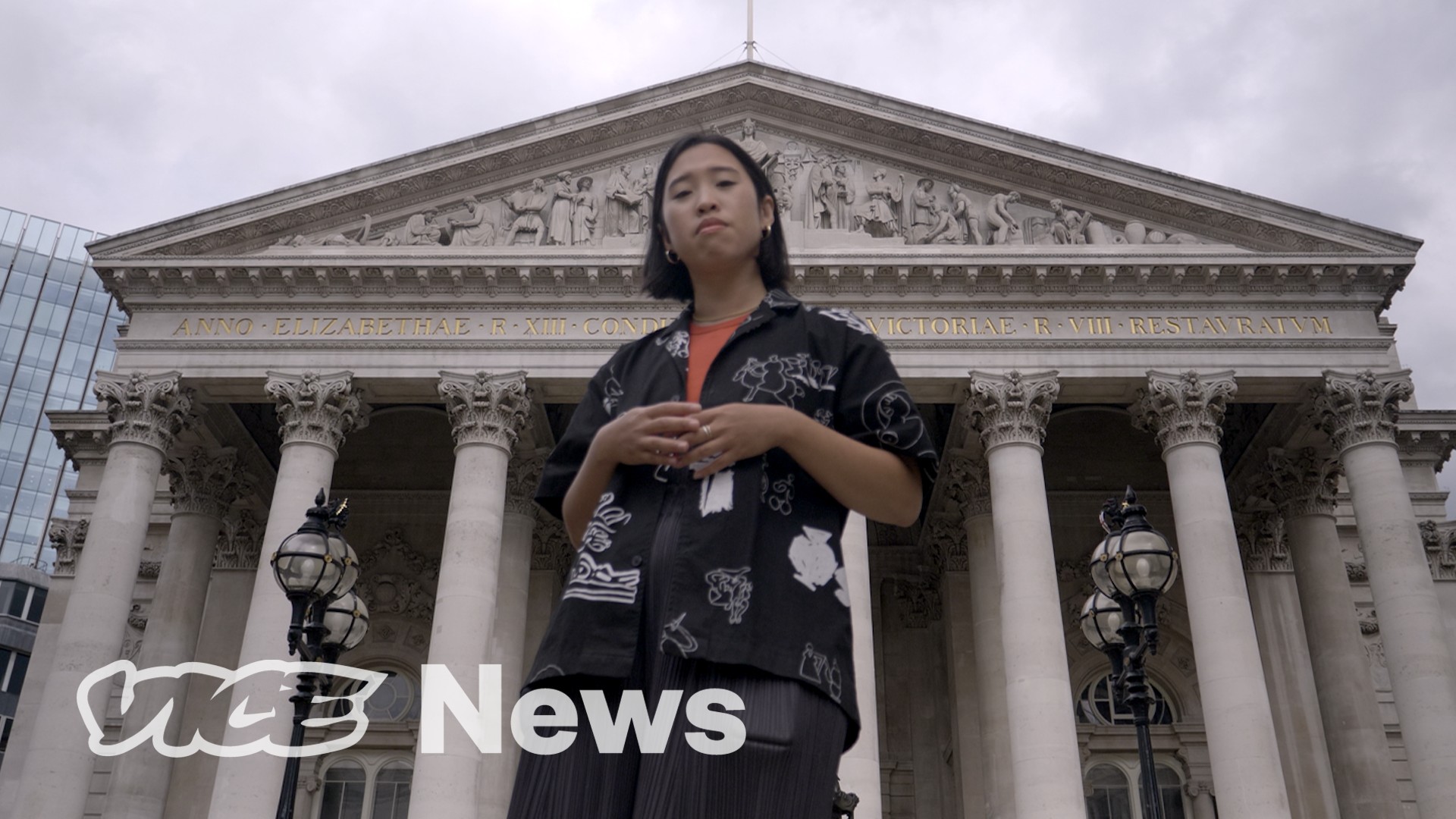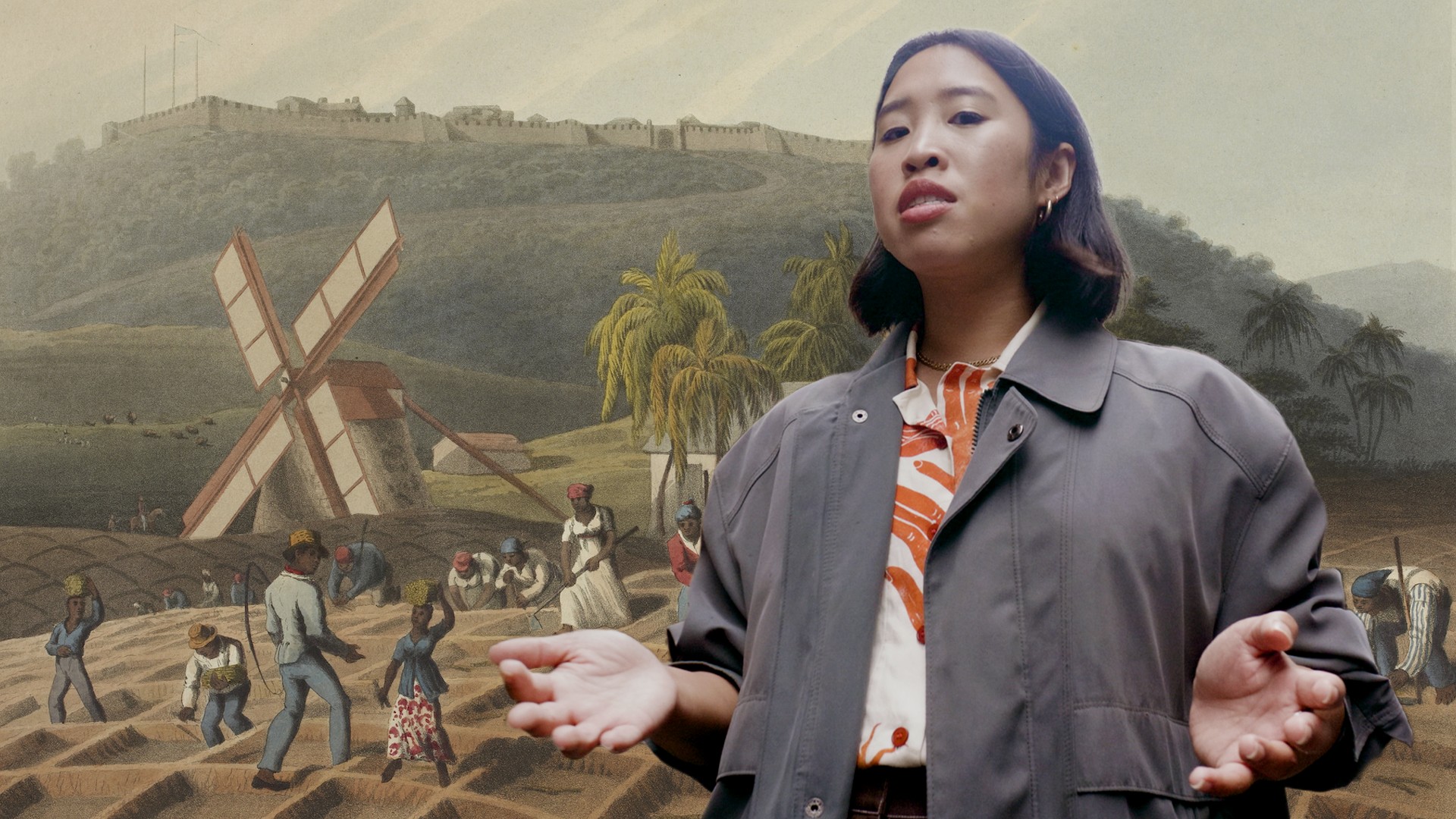KERICHO, Kenya – Kibore Cheruiyot Ngasura was around 10 years old when British soldiers rounded up the Talai clan, forcing them to abandon their homes, cattle, and possessions, so they could occupy the land to grow tea. Those who refused were beaten and threatened with death. “God gave everybody their own land, but the British came and took ours,” Ngasura said. “Before the British came, we had no problems… We had peace.”
Advertisement
Now 98, he is the oldest and only living male survivor who was held at the Gwassi detention camp, set up by British colonialists to expel the indigenous people from their land so the British could profit from its resources, particularly by growing tea. Prior to living in Gwassi, the Kipsigis and Talai clans lived in polygamous communities where land was communally owned.  VICE World News met him as he sat outside his home on top of a hill in the highlands west of the Kenyan Rift Valley. Kericho is known for its lush landscape and rolling tea hills, where locals produce some of the world's best tea. As Ngasura sat with a wooden cane in one hand, he held photographs in the other that document how British colonialists forcefully evicted him from his ancestral lands in 1933. Ngasura, along with other survivors of colonial violence and land theft, have filed a case against the British government at the European Court of Human Rights (ECHR), an international court that interprets the European Convention on Human Rights. They are seeking compensation in the range of £178 billion ($200 billion, €200 billion). The death of Queen Elizabeth II has revived calls for Britain to issue restitution for its colonial past and ongoing profiteering from former colonies. British colonialists ruled in Kenya from 1895 until 1963, when the country gained independence. Over that period, approximately 15,000 Kipsigis and Talai Indigenous groups were murdered or died as a result of colonial violence, including starvation. This is in addition to other Indigenous clans in Kenya who faced violence from the British.
VICE World News met him as he sat outside his home on top of a hill in the highlands west of the Kenyan Rift Valley. Kericho is known for its lush landscape and rolling tea hills, where locals produce some of the world's best tea. As Ngasura sat with a wooden cane in one hand, he held photographs in the other that document how British colonialists forcefully evicted him from his ancestral lands in 1933. Ngasura, along with other survivors of colonial violence and land theft, have filed a case against the British government at the European Court of Human Rights (ECHR), an international court that interprets the European Convention on Human Rights. They are seeking compensation in the range of £178 billion ($200 billion, €200 billion). The death of Queen Elizabeth II has revived calls for Britain to issue restitution for its colonial past and ongoing profiteering from former colonies. British colonialists ruled in Kenya from 1895 until 1963, when the country gained independence. Over that period, approximately 15,000 Kipsigis and Talai Indigenous groups were murdered or died as a result of colonial violence, including starvation. This is in addition to other Indigenous clans in Kenya who faced violence from the British.

Advertisement
PHOTO: JACKY HABIB
“We suffered a lot,” Ngasura told VICE World News while looking at a photograph of himself as a teenager in the camp. Ngasura has vivid memories of going hungry, having to scavenge for food from bins at British hotels and bringing it home to his mother to cook for the family. Women, including his mother, were repeatedly raped while in detention. Ngasura was forced to work as a manual labourer to build administrative offices for the British. The living conditions in the camp were inhumane. People were deprived of necessities such as medical care, and their movement was restricted.The camp also had poisonous snakes, tsetse flies, and mosquitos, which transmitted diseases, causing people to die and pregnant women to miscarry. According to Kenyan historian Godfrey Sang, of the approximately 2,000 people who lived in Gwassi, only 100 people came out alive.“There was a lot of screaming every day because children and other people died,” Ngasura recalled.
Kenya is the world's third-largest producer of tea. PHOTO: Billy Mutai/Anadolu Agency via Getty Images
Sang said this was intentional and genocidal. The British “sent the [Indigenous people] to Gwassi because they had one goal: They wanted them to die and be extinct,” he said.Official British documents indicate that the Gwassi detention camp was uninhabitable for humans and would be a place for “old men to die out gradually in Gwassi.”After contracting malaria in Gwassi, Ngasura's father died. His two stepmothers and two stepbrothers also died in the camp, after being bitten by poisonous snakes.
Advertisement
The 115,000 remaining Kipsigis and Talai survivors have never received reparations or an apology. Now, with the support of the Kenyan government, survivors of the mass killings are seeking to hold Britain accountable. Nsagura is among the dozen survivors who recently filed the case with the ECHR in Strasbourg. They want restitution for Kenya's Indigenous Kipsigis and Talai people, whose estimated 200,000 acres of ancestral land is still owned by several British tea companies, including Lipton – which was owned by Unilever until July – Finlay's, and Williamson Tea. When contacted by VICE World News, none of these companies responded to a request for comment.Finlay’s, which boasts on its website of harvesting 28 million kilograms of tea annually from over 25,000 acres of land in Kericho, states that it drives local “positive economic, social and environmental change.” “It is unfair for multinational firms to have wealth while we are suffering. The owners of the land are suffering. The Indigenous people are suffering. This isn't fair before God,” Ngasura said. “I am very sorry that Her Majesty Queen Elizabeth died, but I wish that her son, the king … would make sure there is justice.”British colonial abuse against the Kipsigis and Talai include torture, sexual violence, murder, arbitrary displacement and detention, and inhumane and degrading treatment.
Advertisement

PHOTO: JACKY HABIB
When contacted by VICE World News, the Foreign, Commonwealth & Development Office said: “It would be inappropriate to comment on legal proceedings.”
Advertisement
Bosek, whose grandparents were forcefully evicted from their land in Kericho by the British, said survivors are made to feel as if they should forget about these crimes and move on. “How do you forget when you're still living in pain?” Bosek said. Some of the atrocities committed were so horrific that survivors do not openly speak about them. In confidence, several male survivors told Bosek they were gang raped by up to a dozen British men. “What they did can only be done by primitive and barbarian people, I'm sorry to say,” Bosek said. “They are thieves. They are pioneer land-grabbers… [and they] want to behave as if all is well and it's business as usual.”In July, Unilever sold its tea business, Ekaterra, to CVC Capital Partners Fund VIII for €4.5 billion ($4.5 billion, £3.9 billion). Neither company responded to a request for comment.While these multinational corporations prosper, survivors say they continue to suffer as they are displaced. According to government figures, one in every three people in Kericho live in poverty, measured at earning less than £1.77 per day. Tens of thousands of Kipsigis and Talai work in tea harvesting for the same multinational corporations that operate on their ancestral land. Tea pickers in Kericho told VICE World News they are paid 8 Kenyan shillings (£0.06) per kilogram of tea.
Grace Chelangat Chepkwony. PHOTO: Jacky Habib
Grace Chelangat Chepkwony was 4 years old when British soldiers deported her and her family to Gwassi detention camp in 1934.
Advertisement
Chepkwony and her people were uprooted from their ancestral land after British colonialists conducted soil tests, which found that Indigenous people lived in the very fertile land, ideal for growing tea. The colonialists forcefully evicted the clans who had lived there for generations, and unleashed horrific violence on them, in order to subdivide the land and sell it for tea plantations. “Since the British wanted to rule, they wanted to dispose of the Talai,” Chepkwony told VICE World News from her home in Kericho. “Their intention was to oppress us.”Chepkwony, 92, recalls the gruelling, 14-day journey by foot to Gwassi, and how adults and children alike were beaten by the British. She considers herself "lucky to be among the survivors, because many children died along the way."In Gwassi, Chepkwony's family members were given identification cards by the British, meant to confine them to the camp as they required permission to leave. Her memories include going hungry and the sadness she felt while displaced and struggling in a strange land. The horrific camp conditions took an immense mental toll, Chepkwony said. Many Talai people lost their lives to suicide, including Chepkwony's great-grandfather and great-grandmother, who struggled to cope with the loss of several of their children who died from malaria on the way to Gwassi and in the camp. “Because we are still landless, we remember all of the things that happened,” she said, sharing that intergenerational trauma continues to impact the youth. “I hope that one of these days, we will get compensation while I am still alive,” she said. Chepkwony, who sends her condolences to King Charles III on the passing of Queen Elizabeth II, has a message for him too: “I'm asking him to come [to Kenya] and pay damages, and ask for forgiveness. If he does, I will forgive the British, and they will have peace on their land.”